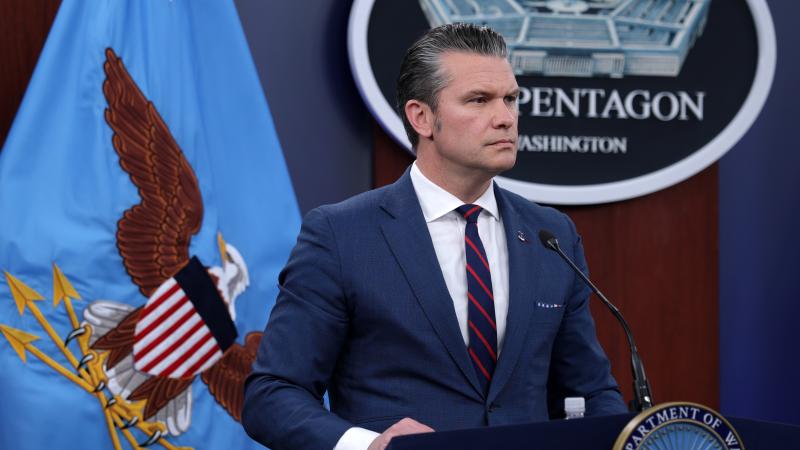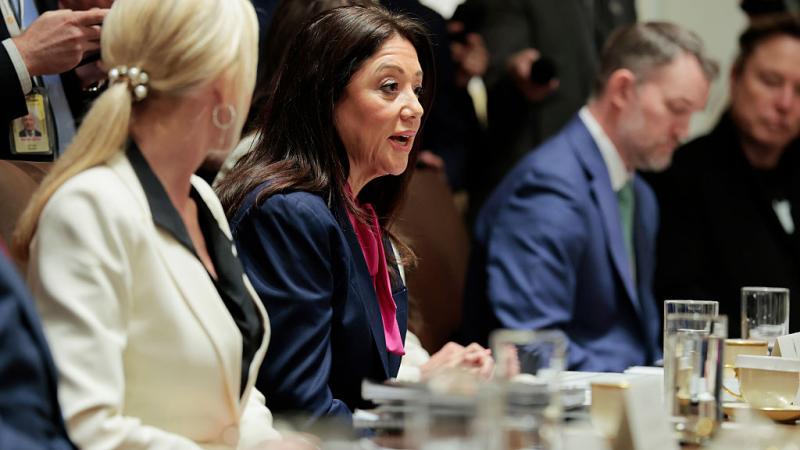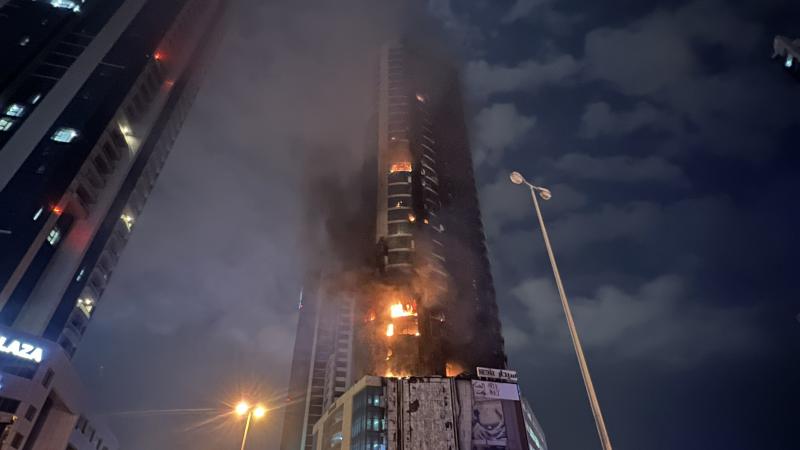Congress seeks NIH emails suggesting Fauci worked behind scenes to snuff COVID lab leak stories
House coronavirus subcommittee demands materials David Morens hid using his personal email and cellphone, transcribed interview. Fauci adviser suggested suing critics to silence them.
A select House panel on the coronavirus pandemic wants answers from a senior scientific adviser to Dr. Anthony Fauci when he was director of the National Institute of Allergy and Infectious Diseases and who has implied Fauci tried to covertly discredit the COVID-19 lab leak theory.
Ohio GOP Rep. Brad Wenstrup, chairman of the House Select Subcommittee on the Coronavirus Pandemic, is asking the adviser, David Morens, to turn over documents and communications from his personal email and cellphone, based on information suggesting Morens is intentionally using non-government communications to avoid disclosure under the Freedom of Information Act and violate federal record-keeping laws.
The information is purportedly in Morens' emails, and the subcommittee wants a transcribed interview Aug. 2.
The Intercept published dozens of pages of emails including Morens, already obtained by the subcommittee, with scientists who were also seeking to discredit lab leak.
They include EcoHealth Alliance President Peter Daszak, whose organization funneled U.S. grant money to the Wuhan Institute of Virology, the suspected source of a lab leak; Kristian Andersen of the Scripps Research Institute, who initially told Fauci SARS-CoV-2 looked "potentially" engineered; and Angela Rasmussen of Canada's Vaccine and Infectious Disease Organization, who warned that entertaining lab leak could harm U.S.-China relations.
Morens notified the scientists Sept. 9, 2021, that "I may have to occasionally email from my [National Institutes of Health] account" until his hacked Gmail account, which does not connect to "my NIH computer," is fixed.
"As you know, I try to always communicate on Gmail because my NIH email is FOIA'D constantly," his email says. The other scientists can still email him, and "I will delete anything I don't want to see in the New York Times."
In a July 29, 2021, exchange with Bloomberg News reporter Jason Gale for a story on COVID origins, Morens said the White House and Department of Health and Human Services denied him permission for "many months" to talk on the record about origins.
"But today, to my total surprise, my boss Tony actually ASKED me" to do this with National Geographic," Morens said, likely referring to Fauci. "| interpret this to mean that our government is lightening up but that Tony doesn't want his fingerprints on origin stories."
Previously disclosed communications suggest Fauci and then-NIH Director Francis Collins covertly contributed to a March 2020 Nature Medicine paper led by Andersen that dismissed a lab leak as a possibility. Fauci later cited the paper in a White House press conference.
Wenstrup flogged Morens for telling National Geographic that searching for the "progenitor virus" may have already crossed over from "doing due diligence to wasting time and being crazy." According to the chairman, "This raises the question of whether this was the narrative Dr. Fauci approved you to say."
Morens suggested his fellow scientists use strategic lawsuits to silence both critical scientists such as Rutgers' Richard Ebright and journalists who were covering China's coronavirus research.
In a Sept. 7, 2021, email referring to such an Intercept report, Daszak complained that FOIA requests were straining EcoHealth staff and that "lab leakers" were promoting "lines of attack that will bring more negative publicity" against Fauci and "all of us" for promoting gain-of-function research that could make viruses more dangerous.
"Do not rule out suing" them for "slander," Morens said, apparently referring to libel.
Morens' email footer included his position in NIAID's Office of the Director. "This gives the appearance of a government official encouraging litigation against the press for reporting that does not follow public health bureaucrats' pre-conceived narrative and is unacceptable," Wenstrup told Morens.
NIAID did not respond to requests for its response to Wenstrup and how it characterizes Morens' emails.
The subcommittee chairman was also disturbed that Morens referred to Ebright and MIT Broad Institute adviser Alina Chan as "harmful demagogues," in connection with a journalist purportedly conveying their take that NIH-funded Chinese research qualified as gain of function.
"They need to be called out," Morens wrote in a typo-ridden email. "Because i am in govemment i can only fo this off the record, but have done do again and again." Including these scientists' views in balanced stories is journalists giving "equal time and space" to a Holocaust survivor and "Nazi murderer," he said.
Morens went so far as using his NIH email to trash Chan for research papers he called "biased, cherry-picked, and not the work of a scientist with integrity."
"These all raise serious concerns about your objectivity while stationed" in Fauci's office at NIAID, which "obligates billions of dollars annually," Wenstrup said. The subcommittee will ask "whether you made or influenced any funding decisions based on your personal motives or biases towards scientists."
The letter requests Moren turn over materials related to the "drafting, publication, or critical reception" of several academic publications related to COVID origins.
It also seeks his communications – including text messages regarding the Wuhan lab, EcoHealth and COVID origins back to Nov. 1, 201 – with Fauci, Collins and several other NIH officials as well as scientists involved in alleged gain of function research.
















